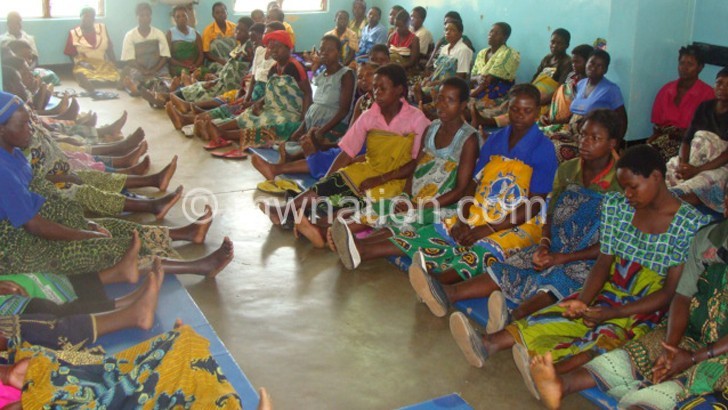Hara’s channel to safe motherhood
Working as a nurse and midwife, Wilned Hara felt there was a big knowledge gap on safe motherhood in the country.
He has since published a book, Family Guide to Safe Motherhood to bridge that gap.

“Every day I see women struggling with preventable maternity problems. Women and newborn babies die from treatable conditions if only their families knew how to detect problems early and seek medical help,” he explains.
A 2016 study by the White Ribbon Alliance found that there was acute shortage of midwives in Malawi working in the hospitals.
Hara notes that the World Health Organisation (WHO) recommends one midwife for every 175 women of reproductive age, yet, in Malawi, one midwife takes care of 1 199 women.
“According to a study by Kongyuy E.J, Mlava G. and Van De Broek N. in 2009, this shortage directly or indirectly affected the ability of midwives to provide education on safe motherhood to families, consequently resulting in significant deaths or complications for women and children,” says the midwife.
The reasons above, coupled with the many questions he got from the public whenever he blogged on safe motherhood convinced him to take another step in providing information to the public in a convenient way, hence, the book.
Family Guide to Safe Motherhood takes individuals through pre-conception, how to conceive, successful pregnancy and childbirth.
“A woman needs to be in good physical and psychological condition before getting pregnant and if she has any health problems, she needs to address them to increase her chances of a successful pregnancy.
“The book empowers families to actively take part in promoting safe motherhood. Men and other members of the family will have no excuse in caring for a pregnant woman and newborn as there is sufficient information for them,” says Hara.
The 2015/16 Malawi Health and Demographic Survey found that progress is slow in the fight against maternal and newborn deaths.
It says 439 out of every 100 000 women are dying due to pregnancy and childbirth related complications, not taking into account the women who are surviving with life altering complications such as fistula.
According to Hara, Greece and Estonia have less than three maternity related deaths out of the same 100 000 women, adding that Malawi needs to do more.
He claims to have received positive feedback from those who have bought the book so far.
Hara graduated with a Bachelor of Science in Nursing and Midwifery at Kamuzu College of Nursing (KCN) and is currently working with Chatinkha Maternity Wing at Queen Elizabeth Central Hospital.
Director of Improved Midwifery care Access Initiative (IMCAI) Dan Kawaye said the book complements their efforts to increasing access to quality sexual, reproductive, maternal and child health services.
“Malawi, with one of the highest cases of maternal deaths, needs more innovations. Every action counts and every life counts,” he said. n




